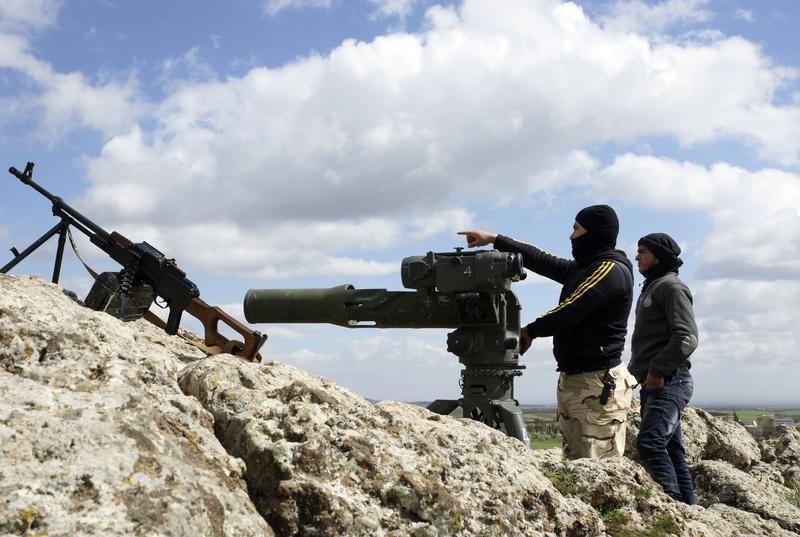By Tom Miles
GENEVA (Reuters) - Latest U.N. efforts to resolve the Syria crisis could succeed this time and lead to a united front against Islamic State followed by a political transition, Russia's ambassador to the United Nations in Geneva said.
Earlier this week, the United Nations said its Syria envoy would launch fresh consultations with Syrian factions and interested countries on a new round of peace talks, a year after the last such initiative collapsed.
However, Russian envoy Alexey Borodavkin said there was reason to hope for better results now, arguing that both mainstream Syrian opposition and government negotiators increasingly recognised that there was no military solution to the four-year-old civil war, that has killed more than 220,000.
Borodavkin said the fact that some opposition negotiators were no longer supported by a meaningful military, also helped.
"The Free Syrian Army was partly defeated, partly joined the extremist forces of Daesh," he said, using an Arabic term for Islamic State. "This in itself is not a positive development, but this is reality, and the opposition should recognise that."
While the FSA is a much diminished force, insurgent groups have recently made significant gains against Syrian President Bashar al-Assad, including mainstream rebels, who seized the Nasib border crossing with Jordan this month.
Russia has forcefully backed Assad in the war, rejecting calls from the opposition and West for him to stand aside.
While the main, Western-backed political opposition alliance sticks to this position, Borodavkin said some opponents were no longer insisting he must step down.
"I do believe that we have to focus not on personalities but on the objective to stop bloodshed first of all, and to fight Daesh together," he said.
The Islamic State, a radical Sunni Muslim force which holds swathes of Syria and Iraq, remains the single most powerful player out of a multitude of insurgents -- from radical jihadists to more secular-minded Syrian nationalists.
Borodavkin said the emergence of Islamic State as an enemy for both the government and political opposition had created common ground.
"They will share the same fate, and that naturally encourages their rapprochement," he said. "Opposition, government and the outside forces should join efforts in fighting this threat."
Many diplomats are pessimistic over the U.N.'s chances of ending the Syrian bloodshed. However, Borodavkin said efforts by U.N. Syrian envoy Staffan de Mistura to secure a local ceasefire in Aleppo had helped build confidence.
"They made some concessions, they were looking for consensus and compromises. And that is important. This is changing the mentality of the parties concerned, from hostility to a pattern of negotiations."

Syrian rebels rejected the Aleppo plan last month, saying it would only benefit the government.